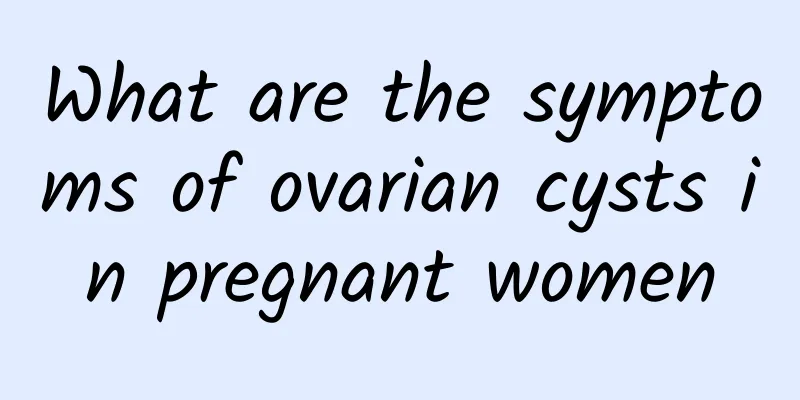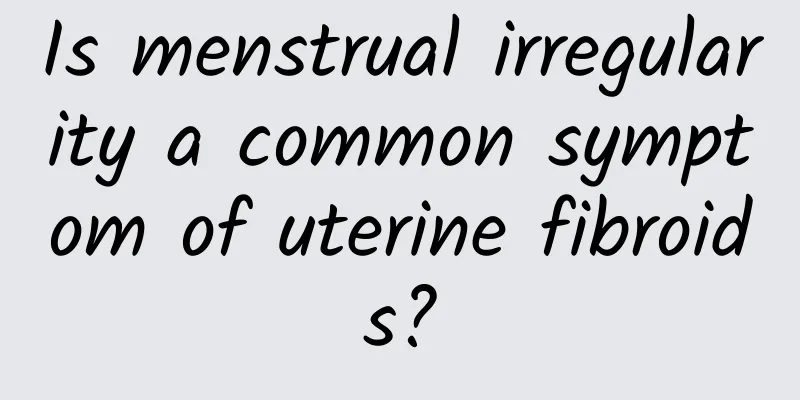What are the symptoms of ovarian cysts in pregnant women

|
Symptoms of ovarian cysts in pregnant women may include lower abdominal pain, bloating or pressure, and treatments include regular monitoring, medication and surgical intervention. Ovarian cysts are common in pregnant women, usually caused by hormonal changes, and most are benign, but you need to be alert to complications such as rupture or torsion. 1. Lower abdominal pain is one of the common symptoms of ovarian cysts in pregnant women. The enlargement of the cyst may compress the surrounding tissues, causing persistent or intermittent pain. The pain may be accompanied by cyst torsion or rupture, and medical treatment should be sought promptly. Pregnant women are advised to undergo regular ultrasound examinations to monitor changes in cyst size and morphology. 2. Abdominal distension or pressure is also a typical manifestation of ovarian cysts in pregnant women. The cyst occupies pelvic space and may affect digestive function, leading to abdominal distension or constipation. Pregnant women should maintain a balanced diet, avoid excessive exertion, and consult a doctor to use laxatives if necessary. 3. Hormonal changes are the main cause of ovarian cysts in pregnant women. Fluctuations in hormone levels during pregnancy may cause cysts to form or grow. Most cysts disappear on their own after delivery, but they need to be closely monitored. If the cyst continues to grow or causes severe symptoms, the doctor may recommend medication or surgical removal. 4. Cyst rupture or torsion is a serious complication of ovarian cysts in pregnant women. Rupture may cause acute abdominal pain and bleeding, while torsion may cause severe pain and blood flow obstruction. These situations require emergency treatment and may require laparoscopic surgery or laparotomy. 5. Regular monitoring is the key to managing ovarian cysts in pregnant women. Through ultrasound examination, doctors can evaluate the size, shape and blood flow of the cyst. If the cyst does not change significantly and there are no serious symptoms, conservative treatment is usually adopted. Pregnant women should follow regular checkups to ensure the safety of mother and baby. The symptoms and treatments of ovarian cysts in pregnant women need to be formulated according to individual circumstances. Regular monitoring and timely medical treatment are important measures to ensure the health of mother and baby. |
<<: What is the cause of irregular menstruation and bleeding?
>>: How to care for cervical hypertrophy
Recommend
Malignant uterine fibroids and vaginal discharge symptoms
Malignant uterine fibroids also have symptoms of ...
The most common early symptoms of ectopic pregnancy in daily life
Ectopic pregnancy is one of the most common gynec...
Eat three meals regularly to save money and lose fat
Mr. Lin, a truck driver in his 50s, often has to ...
What should you pay attention to before doing painless abortion surgery? What preparations should you make before doing painless abortion surgery?
1. Choose a professional hospital Before choosing...
Can I use suppositories to treat vaginal candidal infection during early pregnancy?
Can I use suppositories to treat vaginal candidal...
What is uterine fibroids? How to treat uterine fibroids? What is the cause of this disease?
What is uterine fibroids? How to treat uterine fi...
Do I need to fast before a uterine fibroids exam?
Do I need to fast before a uterine fibroids exam?...
Have you tried the super popular "brown sugar milk" this summer? 3 things you should know before you eat!
The trendy summer drinks change every year. In pr...
Will yellow leucorrhea with odor affect menstruation?
Will yellow leucorrhea with odor affect menstruat...
Is traditional painless abortion painful?
Is traditional painless abortion painful? 1. Pain...
What complications can cervical erosion cause?
There are many diseases in the female cervix, and...
Young children dislike bitter melon and eggplant the most. The key period for correction is before 4 years old.
Do your children have picky eating habits? Accord...
Does having squamous cells matter?
Does having squamous cells matter? This is a ques...
Let's take a look at the mid-term symptoms of vulvar leukoplakia
Vulvar leukoplakia is a common disease, and the n...
Cervical warts treatment remedies
Speaking of cervical warts, I believe many people...









